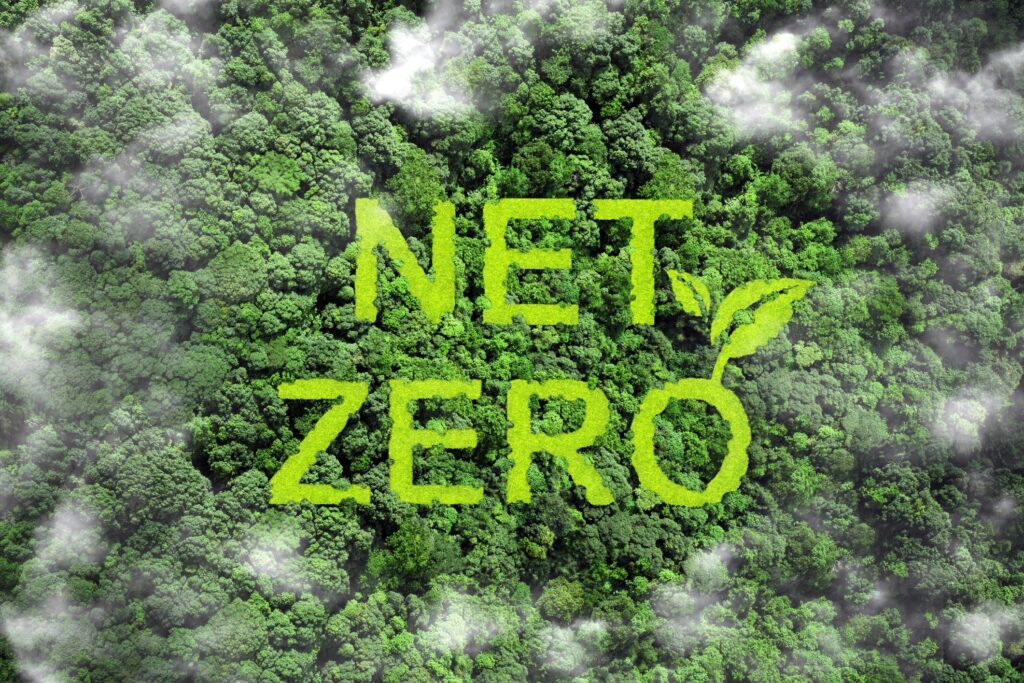Climate change has given companies worldwide a reason to reevaluate their operational practices and business strategies. For many, carbon offsetting is one of the strategies under consideration. Carbon offset programs enable businesses to compensate for their carbon emissions by funding projects that reduce greenhouse gases (GHG). For shippers navigating the need to begin offsetting, they must start by understanding the different types of carbon offset programs, including the Gold Standard (GS), the Verified Carbon Standard (VCS), the Climate Action Reserve (CAR), and the American Carbon Registry (ACR).
This article explains these key offset standards to help shippers identify their business’s best carbon offset program.
What is a Carbon Offset Program?
Organizations use carbon offset programs to compensate for their greenhouse gas emissions by supporting projects that mitigate an equivalent amount of emissions. These programs are a tool for companies, especially those in the shipping industry, to minimize their environmental impact and work toward their sustainability goals.
Two primary types of carbon offset programs are available: mandatory and voluntary. Mandatory offset programs are part of the compliance carbon market, regulated by governmental policies. These programs mandate certain businesses to purchase offsets to comply with emission reduction targets set by regulations. Voluntary carbon offset programs allow businesses to buy carbon credits of their own volition through the voluntary carbon market.
Among the best-recognized carbon offset programs are the Gold Standard, the Verified Carbon Standard, the Climate Action Reserve, and the American Carbon Registry.
Gold Standard
The Gold Standard is a carbon offset program focusing on the United Nations’ 17 Sustainable Development Goals and ensuring meaningful benefits to the climate and the local communities where they are implemented. GS was first started in 2003, and at the end of 2022 counted 238 million carbon credits issued in total, with projects in over 100 countries. Receiving widespread endorsement, GS has a reputation for quality and rigorous requirements.
Verified Carbon Standard
Verra was founded in 2007 to manage the Verified Carbon Standard (VCS), a leading voluntary carbon offset program. VCS is widely used, flexible, and inclusive for a range of project types, provided each one meets strict requirements for GHG emission reduction. Companies can easily find a project that fits with their environmental objectives. Verra has issued 1.1 billion carbon units from over 2,000 projects in 88 countries.
Climate Action Reserve
The Climate Action Reserve (CAR), established in 2001 as the California Climate Action Registry, is known for its rigorous project protocols in natural climate solutions, waste handling and methane destruction, and industrial processes and gases. CAR projects are primarily in North America, allowing companies to choose more locally relevant projects for their business activities. As of 2021, CAR has verified over 169 million metric tons of GHG emissions reductions.
American Carbon Registry
Founded in 1996, the American Carbon Registry (ACR) is the world’s first private voluntary greenhouse gas registry. Companies working with ACR can be confident in the quality of offset projects while accessing a variety of local and global options. ACR focuses on science-based standards plus flexibility for different methodologies to diversify offset sources, provided each demonstrates benefits beyond reducing emissions.
The Right Carbon Mitigation Strategy Begins with an Expert Partner
Carbon offset standards help assure shippers and other businesses that their investments in carbon offsets translate to real environmental benefits and directly contribute to the global fight against climate change.
Selecting the best carbon offset standard is one piece of the puzzle in building a sustainable, scalable emissions mitigation strategy. The choice of an emissions tracking provider is equally important, as it sets the foundation for accurate emissions measurement, which is the first step toward effective mitigation.
This is where Greenabl comes in. As a leading provider of supply chain decarbonization solutions, Greenabl’s advanced technology and data analysis enable companies to measure, mitigate, and offset carbon emissions in the supply chain. Greenabl’s platform helps shippers to understand their carbon footprint in detail for a transparent and reliable baseline for their carbon offsetting investments.
Greenabl partners with Cloverly to help companies offset their carbon footprint. With Cloverly’s seamless API integration for real-time calculations of emissions, users get a simple, transparent, and effective way to offset. Cloverly offsets are also backed by three standards, the Gold Standard, the Verified Carbon Standard, and the American Carbon Registry.
Get Verified Carbon Offsetting and More by Partnering with Greenabl
By using a well-established program, shippers can invest in carbon offsets with confidence, knowing that their contributions positively impact the environment.
Navigating the complexities of sustainability, from carbon offsetting to supply chain decarbonization, is easier with an expert like Greenabl helping you toward a greener future. To get started with carbon offsetting and more, schedule a call with Greenabl today.


